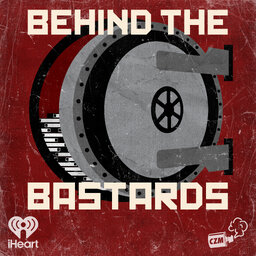Robert is joined by Sofiya Alexandra to discuss the, 'Little Nazis.'
FOOTNOTES:
- https://onlinelibrary.wiley.com/doi/abs/10.1111/j.1467-8497.1969.tb00946.x
- https://scholar.princeton.edu/sites/default/files/bstewart/files/ordinaryvoting.pdf
- https://www.newyorker.com/books/page-turner/i-was-a-nazi-and-heres-why
- https://harpers.org/archive/1941/08/who-goes-nazi/
- https://www.spiegel.de/international/germany/everyday-murder-nazi-atrocities-committed-by-ordinary-people-a-542245.html
- https://www.spiegel.de/international/germany/the-fuehrer-myth-how-hitler-won-over-the-german-people-a-531909.html
- https://www.jewishvirtuallibrary.org/the-horst-wessel-song
- https://encyclopedia.ushmm.org/content/en/article/aryanization
- https://www.amazon.com/They-Thought-Were-Free-Germans/dp/0226511928
- https://www.amazon.com/Black-Earth-Holocaust-History-Warning/dp/1101903473/ref=sr_1_1dchild=1&keywords=black+earth&qid=1602558619&s=books&sr=1-1
Learn more about your ad-choices at https://www.iheartpodcastnetwork.com
In 1 playlist(s)
Behind the Bastards
There’s a reason the History Channel has produced hundreds of documentaries about Hitler but only a …Social links
Follow podcast
Recent clips

Part Two: How Jeffrey Epstein Helped Build the Modern World
1:02:28

Part One: How Jeffrey Epstein Helped Build the Modern World
1:08:16

The Greg Bovino Episode Extravaganza!
1:19:38
 Behind the Bastards
Behind the Bastards